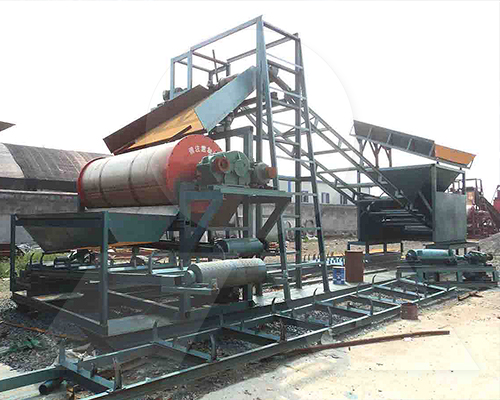Utilizing Ball Mills for Limestone Crushing: Efficiency and Applications
Ball mills have long been an essential piece of equipment in the mining and construction industries, particularly for the crushing and grinding of limestone. This mineral is a key component in the production of cement, agricultural lime, and various industrial applications. In this article, we will explore the role of ball mills in the efficient crushing of limestone, their operational advantages, and the broader applications within the industry.
Introduction to Ball Mills
Ball mills are cylindrical devices used in grinding (or mixing) materials like ores, chemicals, ceramic raw materials, and paints. In the context of limestone, a ball mill operates by rotating a cylinder filled with grinding media (typically steel balls), which crush the limestone as the cylinder rotates. This grinding action reduces the limestone to a fine powder, making it easier to handle and mix with other materials in downstream processes.
Key Features and Advantages of Ball Mills in Limestone Processing
- High Grinding Efficiency: One of the primary reasons ball mills are widely used for limestone processing is their high grinding efficiency. The tumbling action of the steel balls within the rotating drum effectively breaks down the limestone, converting it into a fine, uniform powder. This efficiency is crucial for industrial applications where consistent particle size is important.
- Versatility: Ball mills are highly versatile, able to process a variety of materials besides limestone. This makes them an ideal choice for facilities that need to grind different types of raw materials without the need for multiple machines. In limestone processing, this versatility is particularly valuable for producing materials with varying levels of fineness, depending on the end-use requirements.
- Uniform Product Quality: The design of ball mills ensures that the grinding process produces a uniformly fine product. This uniformity is essential for industries like cement production, where consistent quality and particle size are critical to the performance of the final product. Ball mills help ensure that the limestone is finely ground, leading to higher quality in the end products.
- Cost-Effectiveness: While ball mills are a significant investment, their ability to produce large quantities of finely ground limestone in a cost-effective manner makes them a preferred choice in many industries. The operational costs, including energy consumption and maintenance, are generally lower compared to other grinding equipment, contributing to their widespread use.
- Durability and Longevity: Ball mills are known for their robust construction and durability. When properly maintained, they can provide years of reliable service, which is particularly important in large-scale industrial operations. This long service life makes them a cost-effective solution for limestone processing.
Applications of Ball Mills in Limestone Crushing
- Cement Manufacturing: One of the primary uses of ball mills in limestone crushing is in the production of cement. The finely ground limestone is a key ingredient in cement, where it is mixed with other materials like clay and gypsum to produce a binding agent that holds construction materials together. The fine powder produced by the ball mill ensures that the cement is of high quality and consistent in its properties.
- Agricultural Lime: Ground limestone is also used in agriculture to neutralize acidic soils, improving soil quality and crop yields. The fine powder produced by ball mills makes it easier to spread and mix with soil, enhancing its effectiveness as a soil amendment.
- Industrial Applications: Beyond cement and agriculture, ball mills are used in various industrial processes where finely ground limestone is required. This includes the production of glass, paints, and other chemicals where limestone acts as a filler or a key ingredient.
Conclusion
Ball mills are a vital tool in the efficient processing of limestone, playing a crucial role in industries ranging from cement manufacturing to agriculture. Their high grinding efficiency, versatility, and ability to produce uniform, high-quality products make them indispensable in these applications. As industries continue to evolve and demand higher efficiency and sustainability, ball mills will remain a cornerstone in the processing of limestone, ensuring that this vital mineral continues to meet the needs of various sectors.
- > The Impact of Quartz on Crushing Equipment
- > Crawler Mobile Cone Crusher for Fine Crushing in Gold Mining
- > Advantages of Using Impact Crushers in the Mining Industry
- > Vertical Shaft Impact Crusher for Limestone Crushing in Venezuela
- > What Materials is an Impact Crusher Suitable For?
- > The Application of Cone Crushers in Mining
- > Common Issues in the Operation of Impact Crushers and Their Solutions
- > Applications of Mobile Dolomite Cone Crusher in Malaysia: A Comprehensive Overview
Hot Product


Online




Message

